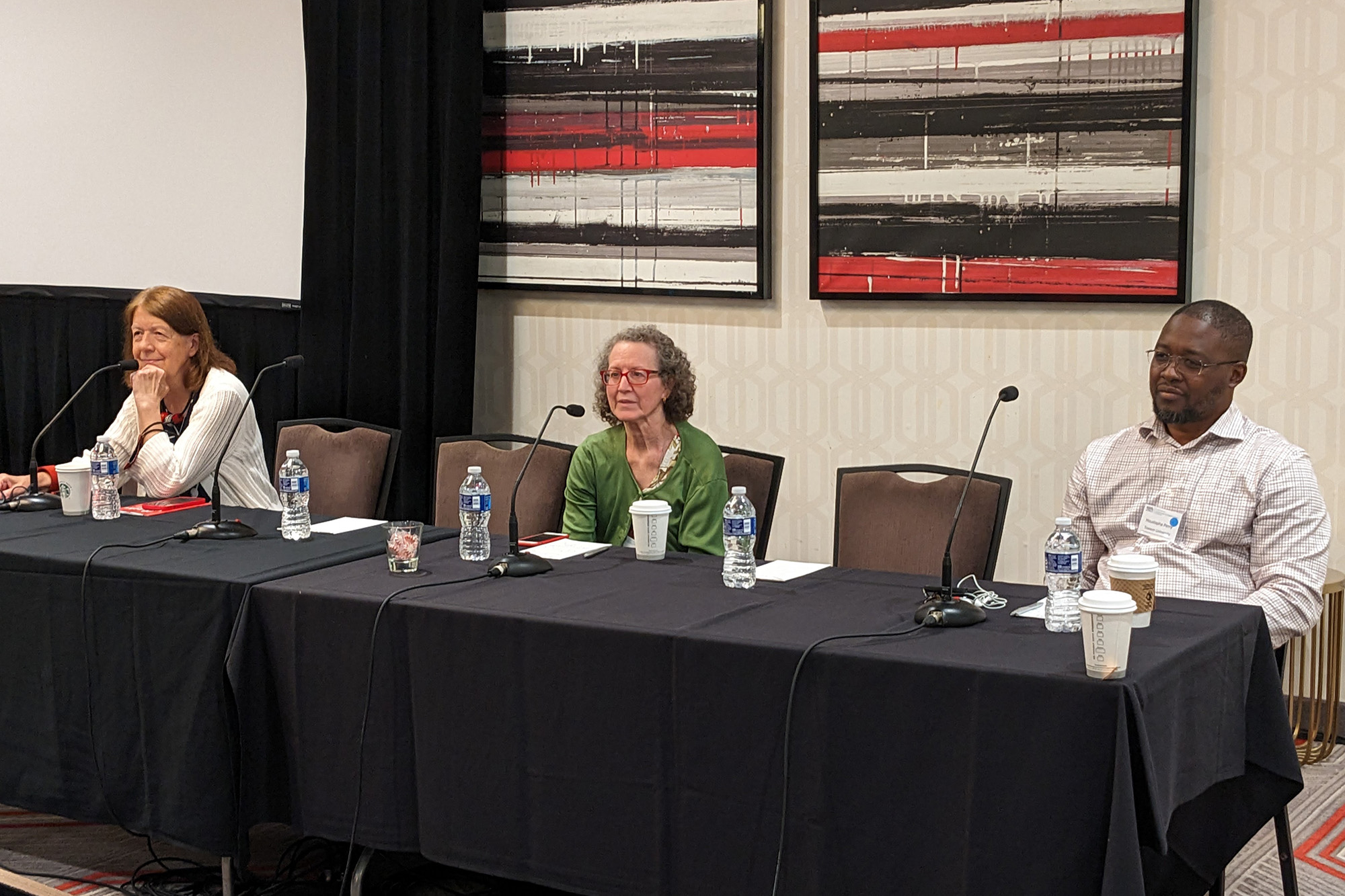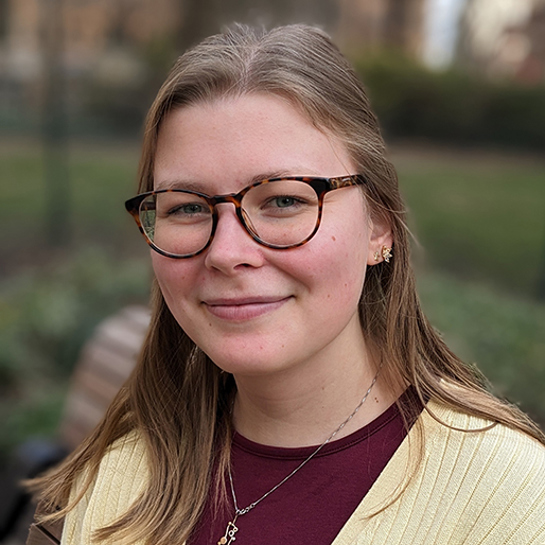CT23 Panel Focuses on Diversity and Inclusion in the Field of Control Theory
Creative efforts can broaden participation and support scholars of all backgrounds across the many research communities within science, technology, engineering, and mathematics (STEM). During the 2023 SIAM Conference on Control and Its Applications (CT23), which took place in July in Philadelphia, Pa., a panel session addressed the topic of equity, diversity, and inclusion (EDI) within the interdisciplinary field of control theory. Chair Lorena Bociu (North Carolina State University) led panelists Suzanne Lenhart (University of Tennessee and National Institute for Mathematical and Biological Synthesis), Bozenna Pasik-Duncan (University of Kansas), and Moustapha Pemy (Towson University) in a discussion about best practices to encourage the inclusiveness of the control community at SIAM and beyond.
During the 45-minute session, the panelists commented on some of the multifarious challenges that currently impede advancements in EDI across different universities and institutions. Pasik-Duncan acknowledged the difficulties in measuring the impact of activities that aim to promote EDI, while Lenhart referenced the June 2023 U.S. Supreme Court decision that struck down affirmative action and limited the capacity of universities to consider racial diversity in the admissions process. In response to this setback, Lenhart advocated for a renewed emphasis on encouragement, programming, and funding for students from underrepresented groups. “It’s a huge challenge, but in every challenge are opportunities,” Pasik-Duncan added.

Increasing the diversity of the student body on college campuses can in turn increase the diversity of people who become applied mathematicians and, ultimately, attend conferences such as CT23. “You need to make sure that the input—the students—is diverse,” Pemy said. “It’s always good to solve problems at the root.” He specifically assessed the use of SAT scores for U.S. college admissions, since not all high schoolers receive the same opportunities to prepare for the test. Pemy suggested that applied mathematicians advocate at their local school boards for the creation of SAT prep courses across all high schools; this issue is in a state of flux, however, given that many college admissions offices are beginning to disregard SAT scores altogether.
Colleges also need to support students from diverse backgrounds once they matriculate. Pemy proposed that universities offer seminars for faculty that help them recognize biases, encourage students to stay in STEM, and foster welcoming and supportive environments within research groups. Furthermore, institutions should appoint leaders who focus on EDI, as policies are often most effective when imposed in a unified way from the top level. Pemy also recommended embedding a person from one department into a different department’s EDI procedures in order to open their processes to external review and make it easier to report unacceptable behavior.
Pasik-Duncan emphasized the importance of imparting passion and developing good relationships with students, so they feel comfortable asking for help or advice. Cultivating this sense of enthusiasm and approachability requires creativity on the part of educators, as well as concerted efforts to ensure that no one is excluded. Pasik-Duncan reiterated her focus on community, sharing that she often hosts large gatherings of students and colleagues. “I love building communities,” she said. “Only by working together can we make the difference.”
To engage all of the students in her large classes, Pasik-Duncan organizes a peer tutoring system in which volunteers coach other students who might not have the same educational backgrounds — and potentially make lifelong friends in the process. The tutee writes a letter of recommendation for their tutor and sends it to Pasik-Duncan, who then uses that information to write her own letter of recommendation when the tutor applies to internships or jobs.
The panelists noted several groups and organizations that promote EDI in control theory and/or wider areas of STEM. For instance, Bociu, Lenhart, and Pasik-Duncan all serve on the Steering Committee of the Association for Women in Mathematics’ research network on Women in Control. Pasik-Duncan also praised an effective initiative at the conferences of the Institute of Electrical and Electronics Engineers Control Systems Society: a luncheon for women on the first day that provides a forum for attendees to make friends and meet with the invited speakers. In a similar vein, SIAM’s Diversity Advisory Committee oversees the Workshop Celebrating Diversity, which typically takes place at the SIAM Annual Meeting (though the most recent iteration occurred at the 2023 SIAM Conference on Applications of Dynamical Systems). This workshop includes a luncheon for all participants and specific minisymposium sessions with presentations by members of underrepresented groups.
Lenhart suggested that listeners join the SIAM Activity Group on Equity, Diversity, and Inclusion—which advocates for EDI in applied mathematics and computational science and encourages dialogue on best practices—and attend their activities at SIAM meetings. She also urged attendees and their relevant organizations to get involved with the TAPDINTO-STEM Alliance, which supports STEM students with disabilities, as well as the Society for the Advancement of Chicanos/Hispanics and Native Americans in Science (SACNAS). “We should think broadly,” Lenhart said. “There are lots of ways we should think about diversity.”
Ultimately, the panel demonstrated that everyone can contribute in some way to the cultivation of supportive and healthy communities that make the exciting field of control theory open to all. “Moving forward, we will all work together to create an environment that is welcoming in applied math,” Pemy said.
About the Author
Jillian Kunze
Master's student, Drexel University
Jillian Kunze is the former associate editor of SIAM News. She is currently a master’s student in data science at Drexel University.

Stay Up-to-Date with Email Alerts
Sign up for our monthly newsletter and emails about other topics of your choosing.



